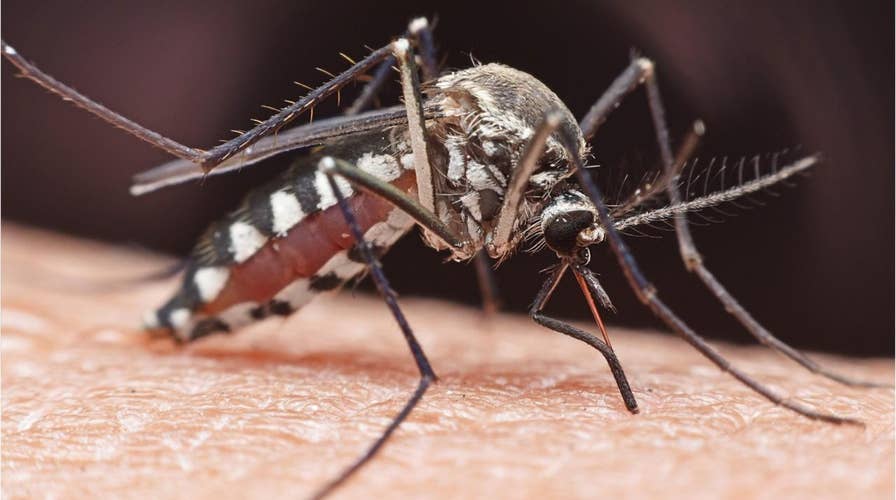How to keep mosquitoes away this summer
Hot and humid weather brings out those pesky mosquitoes. Here are a few simple tips to live a mosquito-free summer.
A Massachusetts woman reportedly died from the rare but serious mosquito-borne Eastern Equine Encephalitis (EEE) virus, her family says.
Family members of Laurie Sylvia, 59, of southern Bristol County, say she died of the virus over the weekend.
Her husband, Robert Sylvia, told the NBC 10 Boston his wife died Saturday after falling ill on Monday. They were married for more than 40 years.
Later, the woman’s daughter, Jen Sylvia, took to Facebook with a post regarding her mother’s death, writing: “Today I had to say goodbye to my best friend.”
“My mom was my favorite person in the world. She brought light and joy to everyone she came across. She would be there for anyone at any time. Her smile was contagious. Her jokes were priceless. She was the life of the party. She knew how to have fun and taught me how important it was to love with all you’ve got and live life to the fullest,” she continued.
“She was such a beautiful soul. I don’t know where to go from here. I just don’t understand how such a beautiful person could be taken from me so soon. I wasn’t done. Each day going forward I will see her smile in my mind, live and love with everything I have. I will honor her memory and find myself again. I have so much of her inside of me.”
She concluded: “My heart hurts beyond words. Thank you to everyone for their prayers. Mom, I hope you find the beach in heaven. I’ll meet you there one day.”
The woman’s case marks the fourth in the state this year, the Massachusetts Department of Public Health said in a Sunday statement. Officials did not identify the patient in the announcement.
EEE, according to the Centers for Disease Control and Prevention (CDC), is a rare disease that’s spread by infected mosquitoes. EEEV “is one of a group of mosquito-transmitted viruses that can cause inflammation of the brain (encephalitis),” the federal health agency says.
EEE is more common in the Atlantic and Gulf Coast states, though the CDC said some cases have been reported in the Great Lakes area. It’s rare — only five to 10 cases are reported each year in the U.S.
Symptoms of EEE typically appear four to 10 days after a person is bitten by an infected mosquito. Severe cases of the virus “begin with the sudden onset of headache, high fever, chills and vomiting,” said the CDC, which noted, “the illness may then progress into disorientation, seizures, and coma.”
One-third of those infected with EEE virus die, while survivors typically have “mild to severe brain damage.”
There’s no specific treatment for the infection.
"I just don’t understand how such a beautiful person could be taken from me so soon."
“Antibiotics are not effective against viruses, and no effective antiviral drugs have been discovered," the CDC said. "Severe illnesses are treated by supportive therapy, which may include hospitalization, respiratory support, IV fluids, and prevention of other infections."
MASSACHUSETTS MAN WITH DEADLY MOSQUITO-BORNE VIRUS IN COMA, DAUGHTER SAYS
The best way to prevent EEE virus and other mosquito-borne ailments is by draining standing water — like in birdbaths, buckets or on pool covers — as stagnant water can serve as a breeding ground for these insects. Other preventive measures include covering skin with long-sleeved pants and shirts while outside and properly using insect repellent containing DEET.
The news comes after a man in the state was reportedly in a coma after contracting the virus earlier this month. At the time, his case marked the first human case in the state since 2013.
Jen Sylvia did not immediately return Fox News' request for additional comment.

